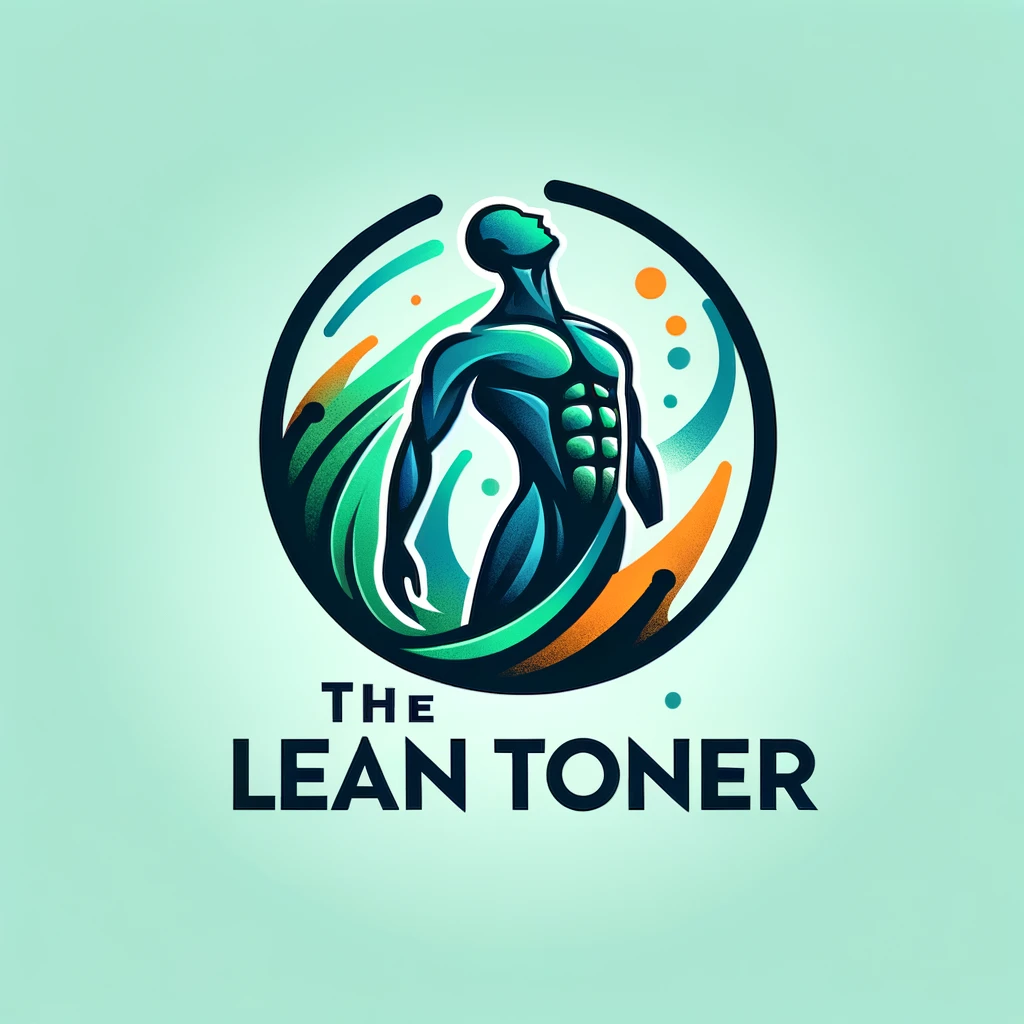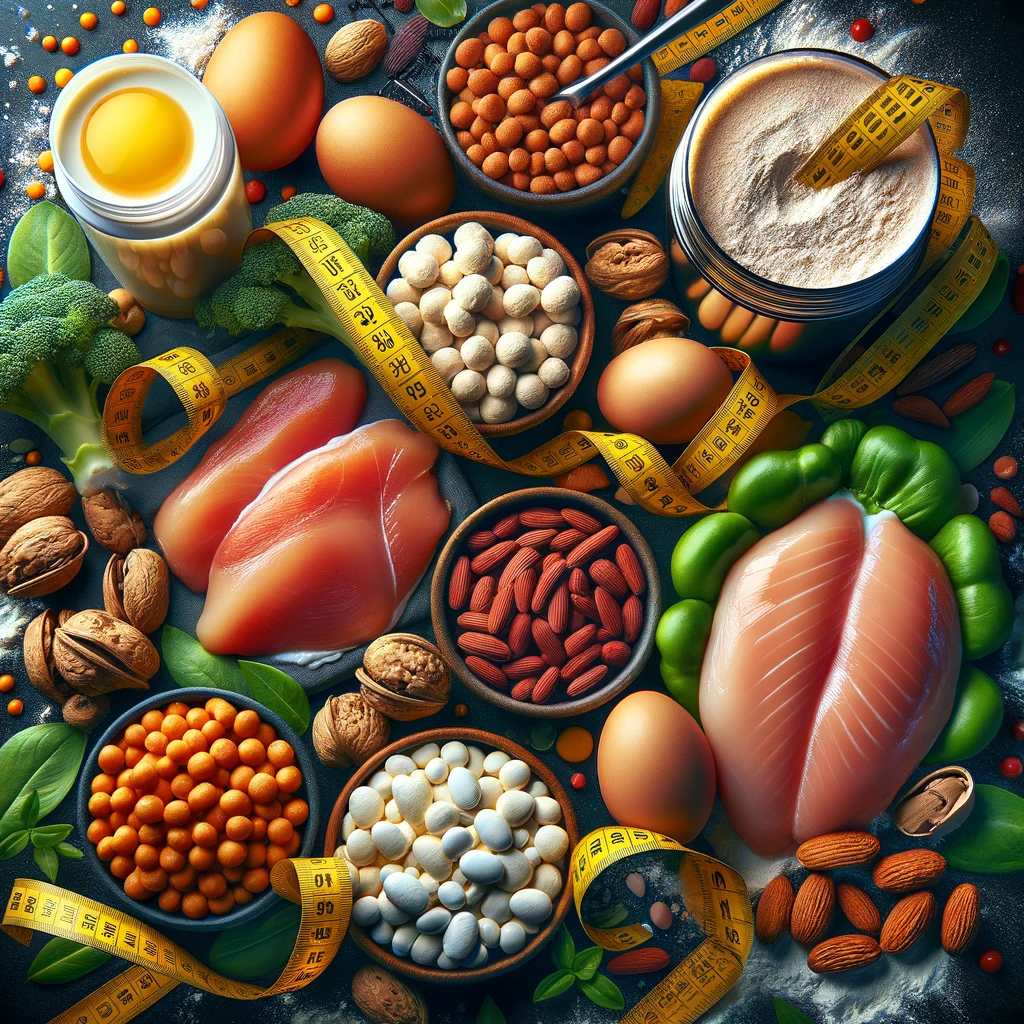Protein Intake for Maximum Muscle Growth
Protein is an essential nutrient for muscle growth and repair. Whether you’re a bodybuilder, an athlete, or simply look
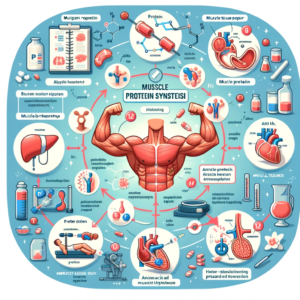
ing to improve your physique, understanding the role of protein intake in maximizing muscle growth is crucial. In this comprehensive guide, we will delve into the science behind protein and muscle growth, provide practical guidelines for protein intake, and address common questions and misconceptions.
The Science of Protein and Muscle Growth
What is Protein and Why is it Crucial for Muscle Growth?
Protein is one of the three macronutrients, along with carbohydrates and fats. It is made up of amino acids, which are the building blocks of our muscles, tissues, and cells. When we engage in resistance training or other forms of physical activity, our muscles undergo microtears. Protein plays a vital role in repairing and rebuilding these muscles, leading to muscle growth and strength gains.
How Much Protein Should You Eat to Maximize Muscle Growth?
To maximize muscle growth, it is important to consume an adequate amount of protein. The optimal protein intake varies depending on factors such as body weight, activity level, and goals. The International Society of Sports Nutrition (ISSN) recommends a daily protein intake of 1.6-2.0 grams per kilogram of body weight for athletes engaged in resistance training. However, individual needs may vary, and it is important to consider other factors such as overall calorie intake and nutrient timing.
Protein Intake Recommendations
The ISSN’s protein intake recommendations are based on extensive research and aim to provide athletes with sufficient protein to support muscle growth and recovery. Studies have shown that higher protein intakes within this range can have additional benefits for muscle hypertrophy, especially in individuals with higher training volumes and intensities. It is worth noting that these recommendations are not set in stone and may need to be adjusted based on individual factors and goals.
Protein Intake Guidelines and Strategies
Calculating Your Protein Needs
Calculating your protein needs can help you determine the appropriate amount of protein to consume for muscle growth. A simple way to estimate your protein needs is to multiply your body weight in kilograms by a factor of 1.6-2.0 grams. For example, a 70-kilogram individual would aim for a daily protein intake of 112-140 grams. It is important to distribute your protein intake evenly throughout the day and include high-quality protein sources in each meal.
Is There Such a Thing as Too Much Protein?
While protein is essential for muscle growth, it is important to strike a balance and avoid excessive protein intake. Consuming more protein than your body needs does not necessarily result in additional muscle growth. In fact, excessive protein intake can be harmful to your health and put strain on your kidneys. It is recommended to stay within the recommended protein intake range and focus on overall balanced nutrition.
Daily Protein Goals and How to Hit Them
Meeting your daily protein goals can be challenging, especially if you have a busy lifestyle or specific dietary preferences. Here are some practical tips to help you reach your protein targets:
- Include a variety of protein sources in your diet, such as lean meats, poultry, fish, eggs, dairy products, legumes, and plant-based protein sources like tofu and tempeh.
- Plan your meals and snacks in advance to ensure you have protein-rich options readily available.
- Incorporate protein supplements like whey protein powder or plant-based protein powders into your diet if needed.
- Opt for protein-rich snacks like Greek yogurt, cottage cheese, protein bars, or protein shakes to boost your protein intake between meals.
- Experiment with recipes that incorporate high-protein ingredients, such as protein pancakes, protein smoothies, or protein-packed salads.
Protein Intake for Special Populations
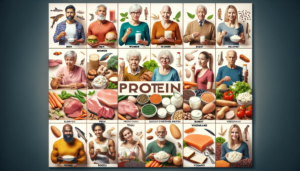
The protein needs of individuals may vary based on factors such as age, gender, and specific dietary requirements. Here are some considerations for protein intake in special populations:
- Men and Women: While the protein needs of men and women are similar, individual variations may exist. It is important for women to ensure an adequate protein intake to support muscle growth and recovery.
- Elderly Individuals: Older adults may require slightly higher protein intake to combat age-related muscle loss. Research suggests that consuming 1.6 grams of protein per kilogram of body weight can maximize muscle growth and strength gains in older adults engaged in resistance training.
- Vegetarians and Vegans: Plant-based protein sources can provide sufficient protein for muscle growth. However, it is important for vegetarians and vegans to combine different plant protein sources to ensure they obtain all essential amino acids.
Practical Tips and Common Questions
Meeting Your Protein Targets
Meeting your daily protein targets can be challenging, especially if you have a busy schedule or limited food options. Here are some practical tips to help you meet your protein goals:
- Plan your meals in advance and include protein-rich foods in each meal.
- Utilize protein supplements like protein powders or bars when necessary.
- Opt for protein-rich snacks like nuts, Greek yogurt, or jerky.
- Experiment with different cooking methods to make your meals more protein-packed.
The Role of Protein When Cutting
When cutting or trying to lose body fat while preserving muscle mass, protein intake becomes even more crucial. Adequate protein intake helps preserve lean muscle tissue and supports fat loss. The American College of Sports Medicine (ACSM) recommends a protein intake of 1.2-1.7 grams per kilogram of body weight for individuals engaging in resistance training or other intense physical activity to maximize muscle growth and minimize muscle breakdown.
What Happens When You Don’t Consume Enough Protein?
Insufficient protein intake can hinder muscle growth and recovery. When you don’t consume enough protein, your body may not have the necessary building blocks to repair and rebuild muscle tissue. This can result in slower muscle growth, muscle loss, and decreased strength. It is important to prioritize protein intake to support your fitness goals.
Protein Intake and Age
As we age, maintaining muscle mass becomes increasingly important for overall health and functional independence. Research suggests that older adults may require slightly higher protein intake to combat age-related muscle loss. Consuming 1.6 grams of protein per kilogram of body weight has been shown to maximize muscle growth and strength gains in older adults engaged in resistance training.
Incorporating Protein in a Balanced Diet
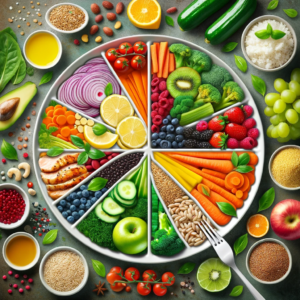
While protein is crucial for muscle growth, it is important to maintain a balanced diet that includes all essential nutrients. Incorporating protein-rich foods into a well-rounded meal plan ensures you obtain a variety of nutrients necessary for overall health. Opt for lean protein sources, include a variety of fruits and vegetables, and choose whole grains for a balanced and nutritious diet.
Conclusion
Protein intake is a key factor in maximizing muscle growth. By understanding the science behind protein and muscle growth, calculating your protein needs, and implementing practical strategies to meet your protein goals, you can optimize your muscle-building potential. Remember to prioritize overall balanced nutrition and consult with a healthcare professional or registered dietitian if you have specific dietary concerns or medical conditions. Fuel your body with the right amount of protein, and watch your muscles grow and your strength soar.
Additional Resources
For further reading and research on protein intake and muscle growth, consider exploring these reputable sources:
- Examine.com: A comprehensive resource on nutrition and supplementation, providing evidence-based information.
- Precision Nutrition: A trusted source of nutrition information, offering articles, research reviews, and practical resources.
Remember, always consult with a healthcare professional or registered dietitian for personalized advice and recommendations regarding your specific dietary needs and goals.
